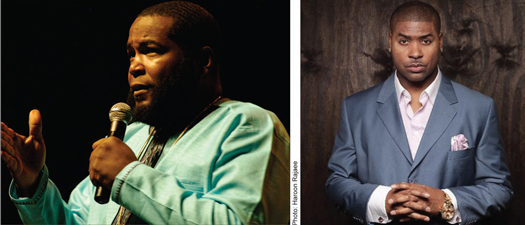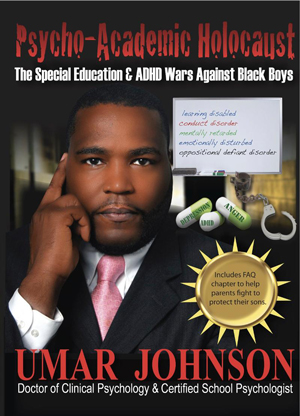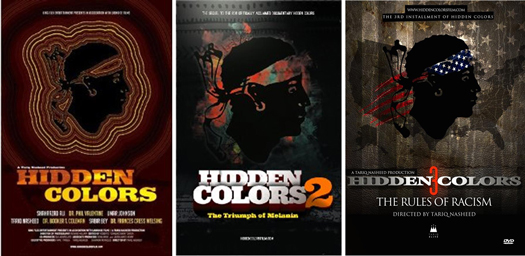By Charlene Muhammad CHARLENEM
With Black nationalists ridiculed from the outside, infighting doesn’t help a movement for Black enlightenment and Black progress

Nobody wins when the family feuds.
And recent infighting inside the Black conscious community alongside blatant disrespect of Black Nationalist and the Pan Africanist ideas and expressions should signal a need for dialogue and respect inside the RBG, or Red, Black and Green, movement.
Pan Africanists promote the unity of all descendants of Africa, on the continent and in the Diaspora. Black nationalists promote the idea that self-determination and an independent nation is needed for Black progress and survival. They reject the integrationist ideology so often touted but still not achieved in American society.
The RBG community, the name taken from the red, black and green flag given by the great Black nationalist leader Marcus Garvey, is part of these traditions and philosophies. Today, however, these believers in Black nationhood are often mocked as “Hoteps,” which is why there is so much pain and disappointment over community infighting.
Tariq Nasheed, best-selling author and maker of the critically acclaimed “Hidden Colors” film series, and Dr. Umar Johnson, a nationally certified school psychologist and popular speaker, are probably the most recent and most well-known to have a nationally known beef. But other conflicts or disagreements between group members, often leaders and scholars, have occurred and have been equally nasty.

The clashes often appear to be tied to notions of respect, or the lack of it, claiming movement territory and a refusal to back down when a perceived challenge arises.
“Calling each other names, questioning their integrity or competence in public, I don’t understand why that’s an issue with them,” said Professor Emeritus of Africana Studies Amen Rahh at California State University-Long Beach.
“Oppression makes you fight each other and be crabs in the barrel and do thing you normally wouldn’t do when you become a victim of the psychological oppression of America, so I’m hoping that they would get back into the teachings of the Honorable Elijah Muhammad, get back into the teachings of Dr. Maulana Karenga, get back into the teachings of Garvey and Frederick Douglas, and just keep your eyes on the prize,” said Prof. Rahh.
“You don’t argue with each other. You argue with the system. Our people are suffering all over the world,” he continued.

Like many, Prof. Rahh argues the system of the White supremacy capitalizes from such conflict, and questions what role the government may have been playing in creating tensions, like it has done with other Black people and movements throughout history.Nation of Islam Minister Louis Farrakhan has long called for a Black United Front, mutual respect and support for one another across any perceived lines of difference or division.
He has also called on Blacks to find the path to atonement with one another when wrongs are committed and a sincere brotherhood in the face of a deadly enemy. Among his latest appeals is for Blacks to establish conflict resolution centers to resolve differences and problems.
“The change has to take place within us,” Min. Farrakhan said.
Activists and scholars in the movement are also disturbed by and clearly want people to understand why it is disrespectful to call those who subscribe to Black conscious ideology as “Hoteps.”
“Hotep” means peace, but in the last decade has been used as a derogatory slur in routine external assaults against Black nationalists and scholars from mainstream online media outlets, such as the Root, which debuted under the Washington Post Company in 2008 and is now owned by Univision, and TheGrio, launched by NBC in 2009.
Others in blogs, and social media posts have used the word to defame Pan African culture by negatively stereotyping Black, Afrocentric men.
Astenu Brown, co-chair of the Committee to Eliminate Media Offensive to African People (CEMOTAP), said the problem is another byproduct of the Black sojourn in America and continued struggle.
Whites justified Black enslavement by denying Blacks their history, which gave rise to Black scholars, who fought, sacrificed and labored to resurrect the uncovered history of their people, he said. Part of that discovery was ancient Kemetic, or Egyptian, ancestors’ use of the word “Hotep,” he explained.
“It was a greeting that simply means ‘peace,’ very similar to As-Salaam Alaikum. It was a very sacred word to us and one that those of us in the conscious community use to greet one another,” said Mr. Brown.
He also credited hip hop music with helping to popularize the study of ancient Kemet, or ancient Egypt. In the last 10-15 years, with the rise of radical feminism, he started to notice an attempt to smear the movement by calling people who practice or who believe in the history of ancient African civilizations by calling them “Hoteps,” said Mr. Brown.
“I personally found it offensive and ignorant, particularly people of African descent using the word. It shows their utter lack of respect for their own history. It’s a symptom of self-hate, and it’s really being used to undermine this movement that we’ve been involved in over the last 30 years,” Mr. Brown told The Final Call.
According to Mr. Brown, those who have denigrated Pan African and Black Nationalist movements, which were successful in getting African history and culture infused into school curriculums, are extremely misguided and allowing themselves to be used.
“We’re trying to give our children a sense of pride in who they are in their culture. … We have to do everything we can to get the word out there about what’s really going on and we have to call these people to task for basically doing the bidding of White supremacy,” Mr. Brown said.
“It’s sad that in our young people’s lives, we have made ‘nigga’ a term of endearment and ‘Hotep,’ a term of abuse,” said Salih Muhammad, chair of the Afrikan Black Coalition, a statewide coalition of Black college student unions in California.
Unfortunately, Black-led has been confused with Black-owned, which is a significant distortion of reality, he warned.
“Black-led media often has no real prioritization of our people’s need to be free and instead prioritizes centering any and all ‘Black news’ in exchange for ratings and more White dollars. We need a free, independent press with real Black agendas beyond ratings, like that of Ms. Ida B. Wells,” Mr. Muhammad added.
Doshon Farad, a broadcaster and proud Hotep, senses a hidden hand, what he calls the “Black Bourgeoisie.” These individuals have allowed their educational or financial statuses to cause them to look down on their own cultural heritage, and have played a role in the demise of Blacks, he said.
“These articles that have been coming out for the past two to three years in TheGrio, in The Root, and Very Smart Brothers referring to Black men such as myself, Umar Johnson and Tariq Nasheed, Afrocentric Black men as ‘Hoteps’ or ‘Hotep-ologists,’ mocking Afrocentricity, mocking anything pro-Black. Michael Harriot and Damon Young are the two main culprits on this attack on Afrocentricity and mocking Black men,” said Mr. Farad.
The Final Call’s requests for interviews with Mr. Harriot and Mr. Young went unanswered at press time.
“Bourgeois negroes go after any other progressive Black person who they see as jeopardizing their status in the big house, i.e. White America. … They went after Garvey. They went after (Booker T.) Washington. They went after DuBois. They went after Malcolm. They went after King,” Mr. Farad observed.












